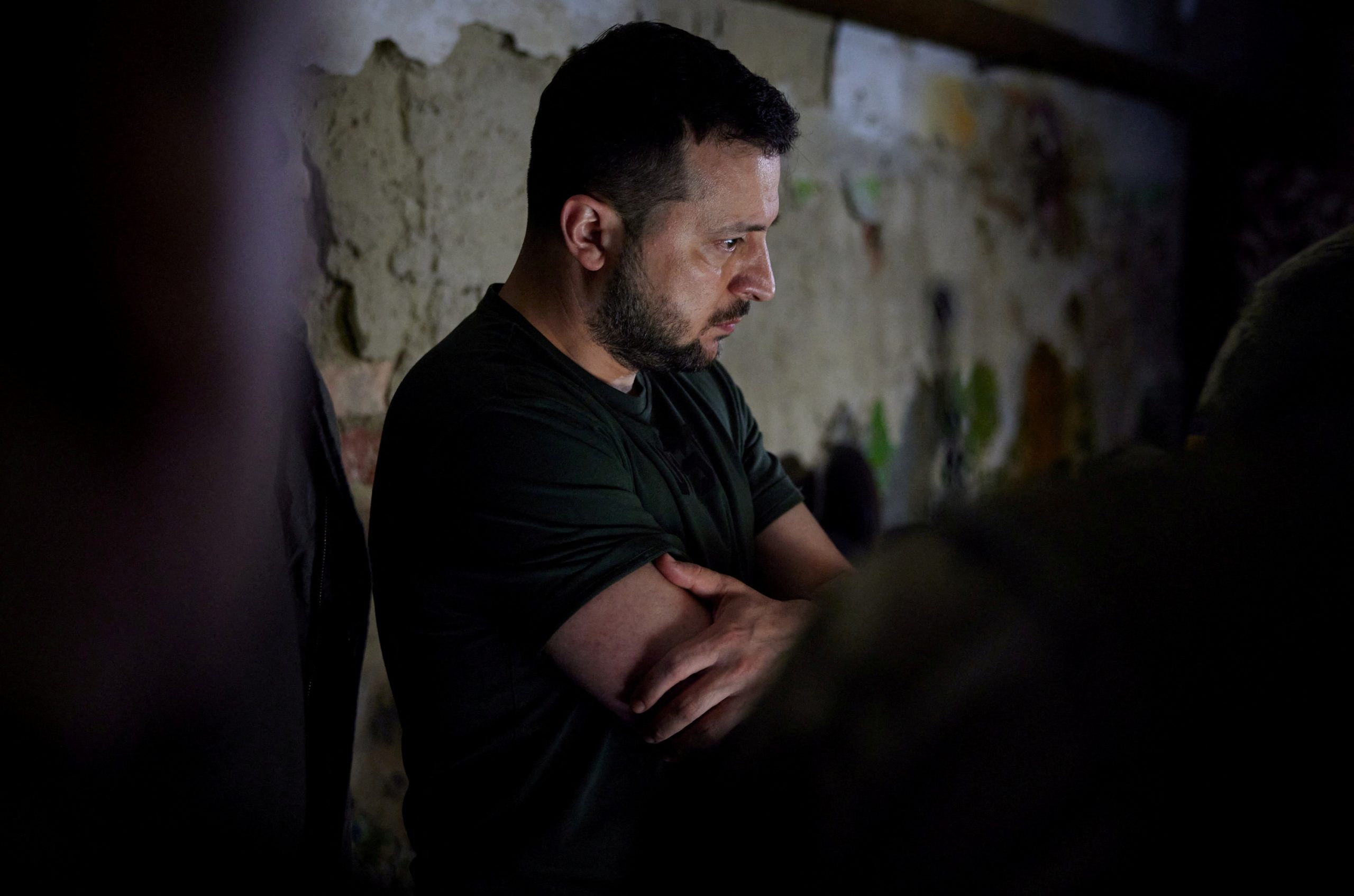
Chris Lange, FISM News
[elfsight_social_share_buttons id=”1″]
Officials in Kyiv are growing concerned that Western powers have begun to experience “war fatigue” that could result in a loss of resolve to help Ukraine defend itself against Russia’s aggression.
As the shock of the Feb. 24 invasion and brutal conflict begins to subside, analysts say the Kremlin could exploit waning interest to pressure Ukraine into ceding territory to Russia in an effort to end the war, according to an Associated Press report.
Ukrainian President Volodymyr Zelenskyy has previously bristled at suggestions that he should accept any form of compromise, declaring that his country will dictate its own terms for peace.
“The fatigue is growing, people want some kind of outcome for themselves, and we want [another] outcome for ourselves,” he said.
Biden, however, has reiterated that the U.S. will continue to support Ukraine in the defense of their country. In a May 31 essay published in the New York Times, President Biden said, “I will not pressure the Ukrainian government — in private or public — to make any territorial concessions.”
Together, the U.S. and its allies have presented a united front against Russia, providing Ukraine with billions of dollars of weaponry and imposing unprecedented sanctions against Moscow.
“There has been nothing like it, even in the Cold War when the Soviet Union appeared most threatening,” said Nigel Gould-Davies, senior fellow for Russia and Eurasia at the International Institute for Strategic Studies, according to the report.
While he doesn’t perceive a significant erosion in the “emphatic support for Ukraine,” Gould-Davies said, “there are hints of different tensions over what the West’s goals should be,” adding, “Those have not yet been clearly defined.”
Domestic concerns could prove to be another factor that could see cracks form in the West’s resolve against Moscow. Sanctions on Russian energy in the U.S. and Europe have taken an economic toll in the form of higher fuel costs, electricity bills, and food prices. This could increase the pressure from average citizens on world leaders to fast-track a resolution to the conflict.
Matteo Villa, an analyst with the ISPI think tank in Milan, points to the weeks of negotiations it took for the EU to work out a resolution to ban Russian oil imports as a sign “that unity in Europe is declining a bit on the Russian invasion.”
“There is this kind of fatigue setting in among member states on finding new ways to sanction Russia, and clearly within the European Union, there are some countries that are less and less willing to go on with sanctions,” Villa said.
Meanwhile, on the battlefront Ukraine remains focused on pushing Russian forces out of newly-captured areas in the east and south as well as reclaiming Crimea, which Moscow annexed in 2014.
Death sentence condemnation
Elsewhere, Ukraine and the West are condemning a pro-Russian court’s decision to sentence two British citizens and a Moroccan to death by firing squad for fighting with Ukraine, calling the proceedings a sham and flagrant violation of the rules of war. The men were captured in Mariupol by Russian soldiers two months ago.
Ukraine’s Foreign Ministry spokesman Oleh Nikolenko denounced the proceedings held in the self-proclaimed Donetsk People’s Republic in Ukraine as legally invalid, according to the Associated Press.
“Such show trials put the interests of propaganda above the law and morality,” he said.
Nikolenko also slammed the court for bypassing international rules of war by declaring the men to be “mercenaries.” He declared that all foreign citizens fighting as part of Ukraine’s armed forces should be considered Ukrainian military personnel and protected as such.
The three men, each of whom purportedly pleaded guilty to the charges against them, have one month to appeal their cases.
NATO bid progress
Sweden hopes to make progress in talks with Turkey concerning its application to join the NATO defensive alliance according to a Reuters report. Ankara has objected to admitting Finland and Sweden into the alliance based on Turkey’s accusations that the Nordic countries support and harbor Kurdish militants and other groups it considers to be terrorists.
Sweden will look to make constructive progress in talks with Turkey on Ankara’s objections over the Nordic country’s application to join the NATO defensive alliance.
“Our application has received broad support among NATO members,” Swedish Foreign Minister Ann Linde told Sweden’s parliament on Friday. “Our ambition is to, in a constructive spirit, make progress on the questions that Turkey has raised.”
Finland and Sweden applied to join NATO last month in response to Russia’s invasion of Ukraine, but Turkey’s objections have stalled progress in their membership bids ahead of a NATO summit that will take place later this month in Madrid.
